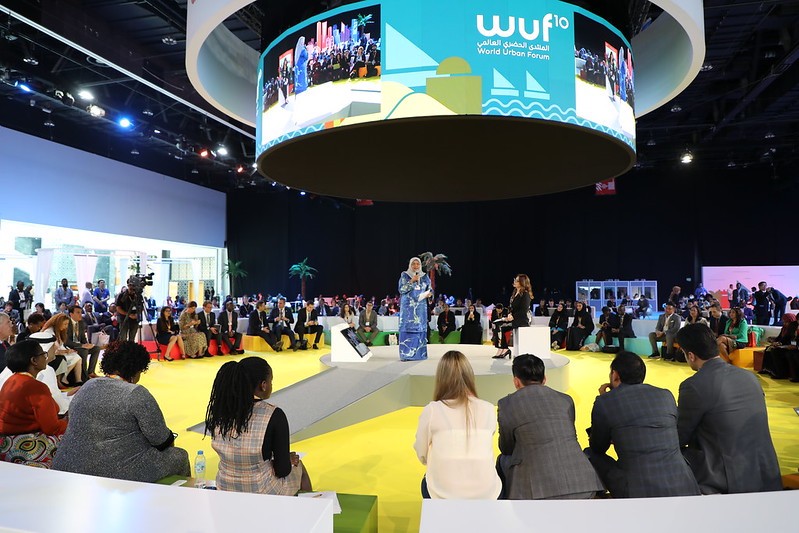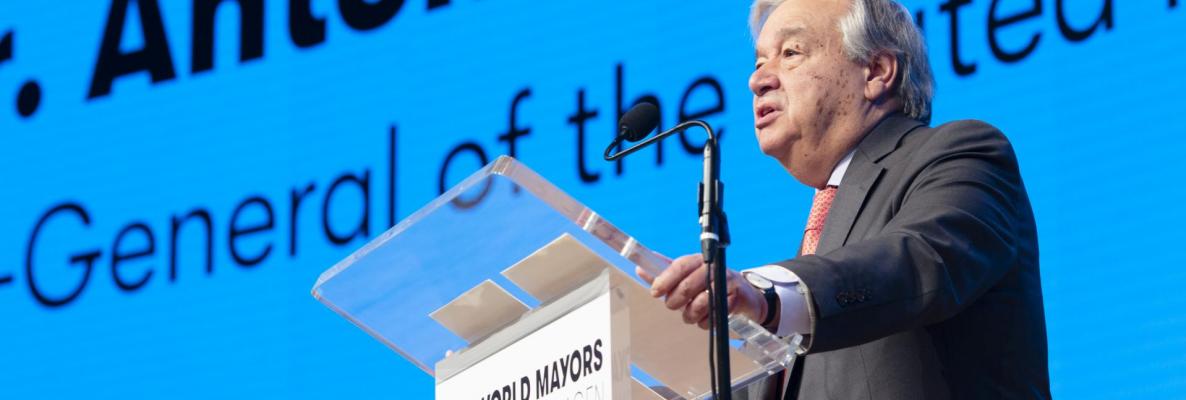I was there, discussing the New Urban Agenda, the impact and opportunities of rapid urbanisation and the urgent need to build urban resilience, especially in humanitarian and development settings, and came back with 3 key takeaways.
1. The launch of the Global Resilient Cities Network
Resilience was a hot topic at the forum, with the launch of the Global Resilient Cities Network, which replaces 100 Resilient Cities, and will be a global network for cities and practitioners to collaborate, share knowledge and drive urban resilience.
The bringing together of all different urban actors in Abu Dhabi once again shone light on the need for a whole society approach to building resilience. This is especially critical in urban areas, where resilience relies upon service providers, the private sector, the informal economy, local authorities as well as communities themselves. We are seeing increasingly protracted and complex crises in urban areas, and these need protracted responses and longer-term thinking. As well as innovative solutions to bring together the humanitarian, development, government and private sector in a meaningful and effective way.

UN-Habitat Executive Director Ms. Maimunah Mohd Sharif gives her remarks during the Joint Opening for Assemblies in Abu Dhabi 2020 © UN-Habitat/Julius Mwelu
2. “Cities are where the climate battle will largely be won or lost” said Guterres
Closely linked to issues of resilience is the impact of the climate emergency. Cities produce more than 70% of the worlds’ carbon dioxide emissions, and with 60% of humanity projected to live in urban areas by 2030, there is little wonder in António Guterres’ statement that “cities are where the climate battle will largely be won or lost”. Communities need to be increasingly resilient against multi, and increasing, hazards, often against a backdrop of other humanitarian concerns. There is an opportunity in urban humanitarian response to build back better resilience and we must prepare for a rapidly changing and urbanizing world.

Antonio Guterres speaks at the 2019 C40 Mayors Summit. Credit: C40 Cities
Local authorities and governments will play critical role in ensuring that cities are resilient and adaptive to climate change. The WUF provided a call to action for greater financial support to this, so that local governments can directly receive funding rather than through national ministries. Whilst this has started happening, initiatives need to deepen and the humanitarian community needs to invest in true localisation for a paradigm shift to occur. Local private sector, authorities, faith actors, communities and informal response networks have the understanding of local climate issues, existing infrastructure, service provision plus the community ties that are critical in urban humanitarian response. The WUF provided an opportunity for knowledge sharing and peer to peer learning on this front, but it must be continued.
3. A platform for sharing innovative ideas to a better urban planning
The forum also provided a space for sharing innovative ideas, best practices and the opportunities that collaboration in urban settings can bring. Urban planning and the way a city is designed, developed and managed, can greatly influence inequality, climate change and even life expectancy in a city. Whilst the scale of the challenge is huge, especially in reaching the most vulnerable and those living in informal settlements, humanitarian and development communities can work with urban planners, the private sector and communities themselves to plan, develop and manage cities in holistic and inclusive ways.
The theme of the forum was culture and innovation and it provided the opportunity to remember why so many gravitate towards cities. They are places of opportunity, of markets, of cultural diversity. They are centres of culture, economic activity, knowledge creation and technological advancements. The world is urbanising rapidly, and whilst the challenges this brings are unprecedented in scale, our cities are also places for enormous, and growing, potential if we can harness it.